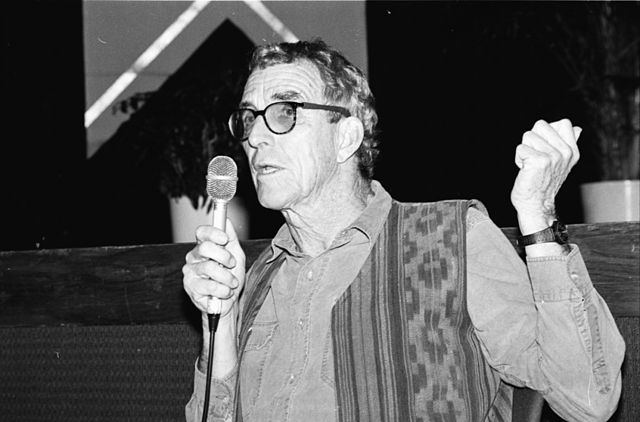I had the pleasure of meeting Peter Matthiessen a handful of times while I was managing the Urban Angler store in Manhattan from 2002-2006. He was such a kind person and an avid angler. His thoughtful incite and pleasant demeanor will be missed by all of those whose lives he touched. Killing Mr. Watson is a must read for anyone with an affinity for the Everglades and South Florida. It is part of a highly regarded and decorated trilogy taking place in the Ten Thousand Islands area of South Florida. The Times has done a great job remembering his fascinating life and works.
[dropcap]P[/dropcap]eter Matthiessen, a roving author and naturalist whose impassioned nonfiction explored the remote endangered wilds of the world and whose prizewinning fiction often placed his mysterious protagonists in the heart of them, died on Saturday at his home in Sagaponack, N.Y. He was 86.
His son Alex said the cause was leukemia, which was diagnosed more than a year ago.
Mr. Matthiessen’s final novel, “In Paradise,” is to be published on Tuesday by Riverhead Books.
Mr. Matthiessen was one of the last survivors of a generation of American writers who came of age after World War II and who all seemed to know one another, socializing in New York and on Long Island’s East End as a kind of movable literary salon peopled by the likes of William Styron, James Jones, Kurt Vonnegut and E. L. Doctorow.
In the early 1950s, he shared a sojourn in Paris with fellow literary expatriates and helped found The Paris Review, a magazine devoted largely to new fiction and poetry. His childhood friend George Plimpton became its editor.
A rugged, weather-beaten figure who was reared and educated in privilege — an advantage that left him uneasy, he said — Mr. Matthiessen was a man of many parts: littérateur, journalist, environmentalist, explorer, Zen Buddhist, professional fisherman and, in the early 1950s, undercover agent for the Central Intelligence Agency in Paris. Only years later did Mr. Plimpton discover, to his anger and dismay, that Mr. Matthiessen had helped found The Review as a cover for his spying on Americans in France.


